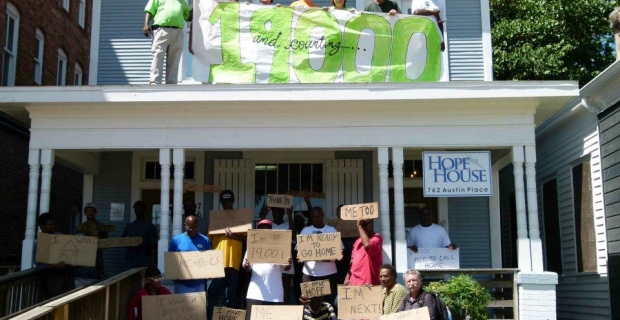
Last February, Minister of State Jan O’Sullivan reiterated Government plans to end long-term homelessness in Ireland by 2016. In outlining how Government policy would help achieve this, O’Sullivan said the focus would be on housing-led philosophies – giving people long-term, stable housing options as early as possible and moving away from past models of passing homeless people through various stages before eventually securing permanent housing for them.
Agencies for homeless people and those working at the frontline of homelessness in Ireland have already taken on this model. Added focus is now being brought to the issue with attempts to adopt a US programme entitled Community Solutions, which aspires to house 100,000 vulnerable and chronically homeless persons across 150 communities in that country by July 2014.
The national movement works with local agencies and individuals in a number of ways to impact on long-term homelessness. Firstly, the organisation asks communities to identify every homeless person in their area by name, and to obtain a set of data from them that in turn allows the agencies to establish accurately their precise needs. All local agencies are then asked to house at least 2.5 per cent of their chronic homeless population each month, which would mean an end to homelessness in four years’ time. And finally, greater communication and pooling of knowledge is applied between existing agencies and services, so that systems used to house homeless people are made more efficient, and local teams are given clear goals and methods of working together.



